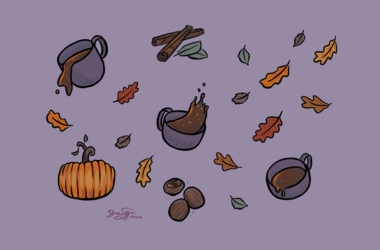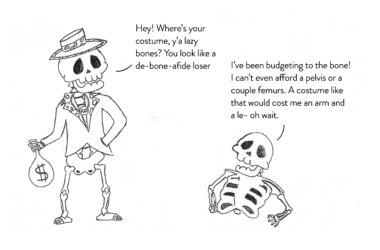What does your major say about you? The McGill Tribune spoke to students of different majors to find out whether the stereotypes about them are true.
- English
With the crushing burden of endless readings and constant familial scepticism, English majors have always had a hard time.
Although their creativity and open-mindedness makes them quite agreeable, they often find solidarity in their peers’ collective struggle. They have a diverse taste in everything artsy, and, at some point, have tried calling themselves artists.
Before entering the program, Faith Ruetas, a third-year English literature major and co-president of the Department of English Student Association, expected a homogenous crowd in her classrooms.
“[I thought] it was just all white girls whose parents pay for their education so they can smoke and write poetry,” Ruetas said. “There are some people who might fit one or two of those characteristics, but there is nice diversity in the program.”
English majors are also often told that their degree will not amount to much and that their career prospects are hopeless. That said, Francesco Cremonini, another second-year English major, believes an English degree opens up many different paths for students.
“I like English because it’s more open ended, ” Cremonini said. “The program is really versatile.”
Hang in there, English majors—your path will soon materialize.
- Computer Science
A dark room, energy drinks, and the sound of keyboards crunching code is what a typical night looks for computer science students.
Although it’s a well known fact that these students compete with each other to get those six hour long technical interviews—that often end up in rejection—their career prospects are still much brighter than their rooms.
Academic success, however, can sometimes come at the expense of a social life.
“We are all sacrificing every part of our life to get into FAANG,”said Ibrahim Naveed, a fourth-year computer science major. Fitting for the bloody image it summons, this acronym refers to the five most prominent––and perhaps soul-sucking––big technology companies. Students’ mathematical and analytical skills are sure to get them there!
To find comp sci majors, all you need to do is head up to the Trottier building at any odd hour, be it day or night.
- Political Science
Individuals pursuing political science are known to have a passion for playing devil’s advocate: They enjoy pushing boundaries and get a rush when adopting controversial opinions—even if these opinions aren’t necessarily their own. They feel the urge to save the world, but believe the best way to do this is by having petty debates in their conference sections.
As some prepare for the future by role-playing as politicians in the classroom, it can be difficult to tell their real personalities from their alter egos.
In all seriousness, poli sci majors are typically good writers and genuinely want to apply their learning into real-life political action.
“People in poli sci seem to have a similar trajectory about what we want to do with our learning in the field of law,” Mira Cantor, a third-year political science major told The Tribune. “[Many] want to go down in a journalistic direction.”
- Economics
Devoid of a social life, these students are just trying to survive the semester without having more than five mental breakdowns. They are either the ones that are raising class averages or the ones cursing those that are.
In this program, students have different career prospects and expect to go into diverse fields after they graduate, from financial consulting to the public sector.
Though they’re known for having a competitive edge, most might agree that teamwork gets them further.
“I couldn’t survive this program without collaborating with my friends,” said third-year economics student Hamza Farooq.
Economics majors can frequently be found huddled in groups on the first floor of Redpath Library, trying to power through all of their assignments.







